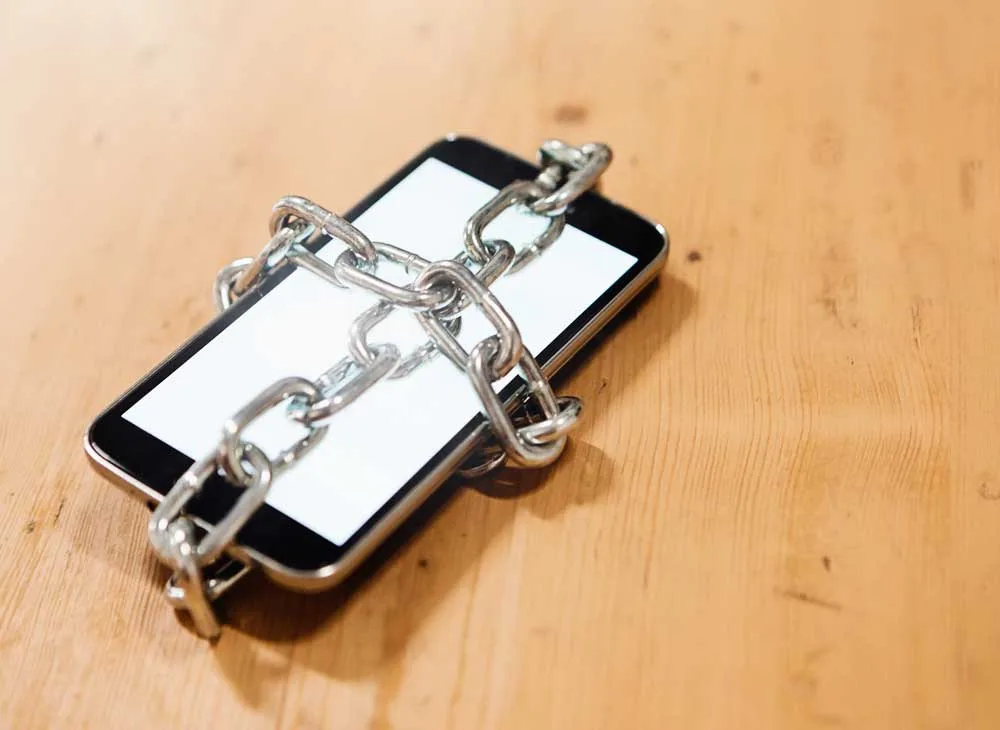In the interests of full disclosure, I checked Facebook about every 10 minutes while writing this story.
I know this because I started noting it down… until I got distracted from that, too. In the process of writing about willpower, I couldn’t fail to notice the irony of my own tendency to drift off task regularly, and that more often than not, social media was where my attention landed.
In the age of social networking, it’s never been easier to delay or avoid difficult, boring or time-consuming tasks. The #goals hashtag might be popular on Instagram, but you have to wonder whether we’re more likely to post about our goals than actually set about achieving them – and our love affair with social media itself is partly to blame. Add in fast internet connections that now allow us to binge-watch an entire TV series rather than wait week-to-week for episodes, not to mention the fact that we can get new clothes and hot dinners delivered to our door in short order, goals that take time to achieve aren’t exactly appealing.
“Culturally, we’ve forgotten what it’s like to delay gratification,” says Leanne Hall, a Sydney-based integrative psychologist. “As such, we generally don’t need to flex our willpower muscle that much. What this can mean is that when we do need it, it’s not very strong, so we struggle. Sometimes this leads to feelings of disappointment and failure, which can then have other negative mental-health impacts.”
If you’ve had your intention to get to the gym after work thwarted by Stranger Things or felt your commitment to writing a novel dissipate as soon as your phone beeps, you’ve probably (wrongly) concluded that you’re lazy or you have no willpower. But according to experts, the commonly held belief that some people have buckets of willpower and others none at all is untrue – which is good news if you’re determined to finally quit smoking (and bad news if you’re looking for more excuses not to try).
“Willpower is an informal term for self-control, and the definition of self-control is the ability to defer immediate gratification,” says Auckland-based psychologist and willpower expert Dr Rebecca Stafford, author of The 21 Day Myth: A step by step guide to rapid habit change.
“The belief that willpower is some kind of fixed or genetic characteristic that people either have or don’t have is a myth. Research suggests it’s a resource we all have, and there are things we can do to increase it.”

Willpower is all in the mind – and you can control it
Dr Stafford started delving into the science of willpower when she returned to university following a marriage breakdown, determined to make the most of the fresh start and finally finish the studies she’d abandoned years before.
Knowing that changing her study habits would be integral to completing her qualification, she sought clarity on why she struggled to stick to tasks. What became apparent in her research was that underlying emotions – commonly a fear of failure or humiliation – often play a part in depleting our willpower.
“The only thing worse than having a horrible suspicion that you’re not good enough is having that suspicion confirmed – and that’s the subtext of procrastination,” explains Dr Stafford.
“It’s a form of self-sabotage, and the subtext of that is: if you don’t try, you can’t fail. Procrastination is actually a rather terrible form of happiness insurance.”
And even when you do get past procrastination to get to bootcamp or start making that quilt, you could abandon the task pretty quickly. “Even if we’re finally making progress towards establishing a habit, we might start saying things like, ‘I should have started sooner’ or ‘It’s not good enough’,” says Dr Stafford.
“When we beat ourselves up, we think we’re punishing our laziness, but we’re actually punishing our efforts. And if you punish something, you decrease the probability of it occurring again, so that makes it harder to start next time.”
It seems willpower is hugely influenced by your mindset. Earlier this year, a study at the University of Illinois found people demonstrated more willpower when they believed they had an unlimited supply of it, and showed a lack of it when they believed it was in short supply.
Hall explains: “In exercise, there’s a concept called anticipatory regulation, which means that when we know we’re running 10km, for example, we regulate our pace to get ourselves across the finish line.
Although we get to the end and say, ‘I could not have gone any further’, we actually could have. If you think you only have a finite amount of willpower, you’ll self-regulate by taking breaks, believing that you’re fatigued. This is because you instinctively don’t want to ‘run out of energy’ and not reach the finish line.”
How being kind to yourself can help with willpower
One of the major drains on willpower is brain fatigue, says Stafford. This explains why you might be highly productive at work but find yourself struggling to follow through on your ‘no snacking’ goal when you get home.
In a small French study, people spent six hours doing brain-draining puzzles, while being asked at regular intervals to choose between getting a small sum of money or a larger sum if they waited.
As the day progressed, they became more likely to take the cash and run.
In contrast, those who spent the day doing easy mental tasks, such as reading, were more inclined to hold out for the larger cash pay-off. This means scheduling tasks you typically avoid for times when you have a lighter mental load, such as first thing in the morning or during weekends, might improve the likelihood you’ll actually complete them.
Given the effect emotions have on willpower, being kind to ourselves also helps us follow through with goals – which makes sense when you consider the way people tend to respond to feelings of shame. Research at the University of Pennsylvania last year found that overweight people weren’t motivated to lose weight when they were fat-shamed – in fact, they were more likely to avoid exercise and consume calories to comfort themselves. Dr Stafford says self-compassion, not self-flagellation, often results in action.
“There’s a ton of research showing that self-compassion has helped boost exercise motivation, reduce smoking and reduce procrastination in students,” she says.
She recommends the following self-compassion strategy to improve willpower. “Write down a weakness or mistake, something that makes you feel bad about yourself or that you feel some shame about, and write for three minutes about it, expressing kindness and understanding towards yourself. You can’t beat yourself up and be self-compassionate at the same time.”

Using your willpower to exercise
Boost your willpower by focusing on improving your motivation.
“If you’re motivated, you don’t need to rely as heavily on willpower,” says Hall. “It feels a tad easier to make those tough decisions.” If your goal is exercise-related, try planning rewards for yourself, such as working out with a friend and getting a coffee together afterwards, or motivate yourself with music by changing your playlist.
Start small. “Like any skill, the more you practice, the better you become,” says Hall.
“Try setting small goals and using willpower to help you achieve them. Be more mindful of when you use willpower during the day, then stretch it out a little by delaying gratification some more.” For example, instead of running off to buy new shoes, put money aside every few days.
“This is your mind learning to delay gratification,” says Hall, “your willpower muscle getting a workout.”
You can become depleted if you use too much willpower, says Hall, so don’t overtrain.
“Start small and focus on one thing at a time. If you deprive yourself too much, like an elastic band you’ll stretch to a point where you might snap! Learn to relax a little, and allow some fun and indulgent stuff from time to time.”
For example, taking on a new training regimen and making changes to your diet all at once is a tall order.
“Making smaller changes each week will ensure you don’t burn out; your changes will become a part of your lifestyle and therefore be sustainable.”

Apps you can use to help your willpower
If you find yourself struggling to complete tasks or get traction with your goals due to the lure of social media, these apps might help you reclaim your willpower:
»In Moment tells you how much time you’re spending on social media and allows you to set limits on your daily usage. (Free; iPhone only.)
»Space – Break Phone Addiction allows you to set goals regarding social media usage and rewards you with achievement badges when you meet your targets. (Free; iPhone and Android.)
»AppDetox schedules and limits your social media use, and forces you to go walking to gain extra screen time. (Free, Android only.)
»Off the Grid blocks your phone for a period of time set by you, and charges your credit card a small fee every time you override it to gain entry to your phone. (Free; Android only.)
»Anti-Social compares your phone usage to other people of your age and gender, so you know whether your usage is uncommonly excessive, then lets you set limits accordingly. ($1.49; iPhone and Android.)


